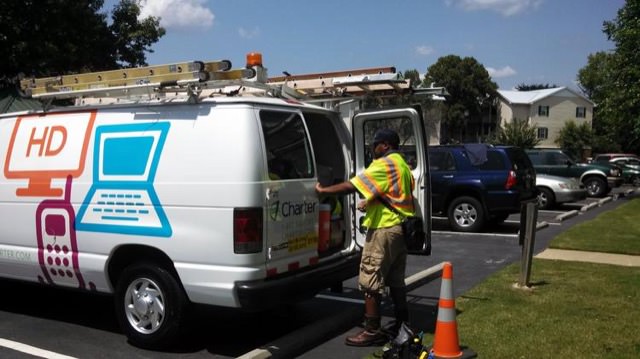Last month, we noted how New York Attorney General Eric Schneiderman sued Charter Communications for knowingly providing broadband service well below advertised speeds. After an initial first read I didn’t think much of the lawsuit (pdf), but upon closer inspection it provides some pretty damning evidence that Charter not only knowingly failed to provide decent service (and just didn’t care, since this is the uncompetitive broadband industry), but in some instances actively made connections worse for its own competitive advantage.
The AG’s suit highlights how Charter manipulated data for a program run by the FCC to monitor consumer connection speeds. This program, co-operated by a UK outfit dubbed SamKnows, gives volunteers custom-firmware embedded routers to monitor connection quality and speed. The FCC was then using this data to name and shame ISPs that failed to deliver advertised speeds. The lawsuit highlights how Charter executives worked to intentionally deliver faster speeds to just these customers in order to trick the FCC into believing its network was performing better than it actually was.
The suit also seemed to confirm something that content and transit operators have been complaining about for a few years — namely that large incumbent ISPs were intentionally letting interconnection points get saturated to extract additional fees from backbone and content providers like Netflix. This behavior quickly ended thanks in large part to the FCC’s new net neutrality rules, which currently protect such interconnection relationships from abuse by incumbent telecom mono/duopolies. With these rules possibly dying this year, it’s a problem you can be sure will re-emerge.
Not too surprisingly, Charter is trying to have this case thrown out. Recent court filings (pdf) indicate that the company successfully had the case moved from state to federal court, with Charter lawyers arguing that the Communications Act completely preempted claims under state law. Charter lawyers even went so far as to justify this position using the exact same 2015 FCC net neutrality rules ISPs lobbied, repeatedly, to destroy:
“Charter even went so far as quoting language from the FCC’s 2015 Open Internet Order (aka the net neutrality regulations) to support the proposition that states are precluded from imposing obligations inconsistent with the FCC’s regulatory regime.
According to defendants’ court papers providing notice of removal, “Given the State’s distortion of the speed tests approved by the FCC and its reliance on other tests that the FCC does not require or endorse, if the ‘state court vindicate[s] [the State’s claim], the relief granted would necessarily force [Defendants] to do more than required by the FCC.’ The State is, in effect, ‘trying to invalidate’ disclosures made pursuant to the FCC’s reporting regime; its claim thus is necessarily federal.”
With the new Trump FCC making it very clear that incumbent ISPs are going to get a free pass on the consumer protection front, the states (with an even more inconsistent track record on consumer protection than the federal government) may wind up being the only thing standing between you and the dubious ethics of companies like AT&T, Charter and Comcast:
“On Monday, the NY AG’s office filed a motion to remand the case back to state court. The forthcoming decision could be an important one if other top legal officials in states across the nation attempt to fill the void of whatever the FCC is not doing….Schneiderman’s attorneys argue that the lawsuit is “rooted entirely in the kind of consumer deception that is within the traditional purview of state law and is historically subject to enforcement in state court.”
Charter’s in a somewhat unique position due to conditions attached to the company’s recent acquisition of Time Warner Cable and Bright House Networks. Those conditions banned the company from not only imposing usage caps, but also require it to continue to adhere to the FCC’s net neutrality rules (including the interconnection provisions) for seven years — even if they’re dismantled by ISPs and loyal politicians this year. Other ISPs face no such restrictions, and depending on Charter’s success here, incumbent ISPs may soon find themselves in a new golden era for anti-competitive behavior.
Source: www.techdirt.com





Be the first to comment on "Charter Tries to Tap Dance Out of Lawsuit Over Substandard Broadband"